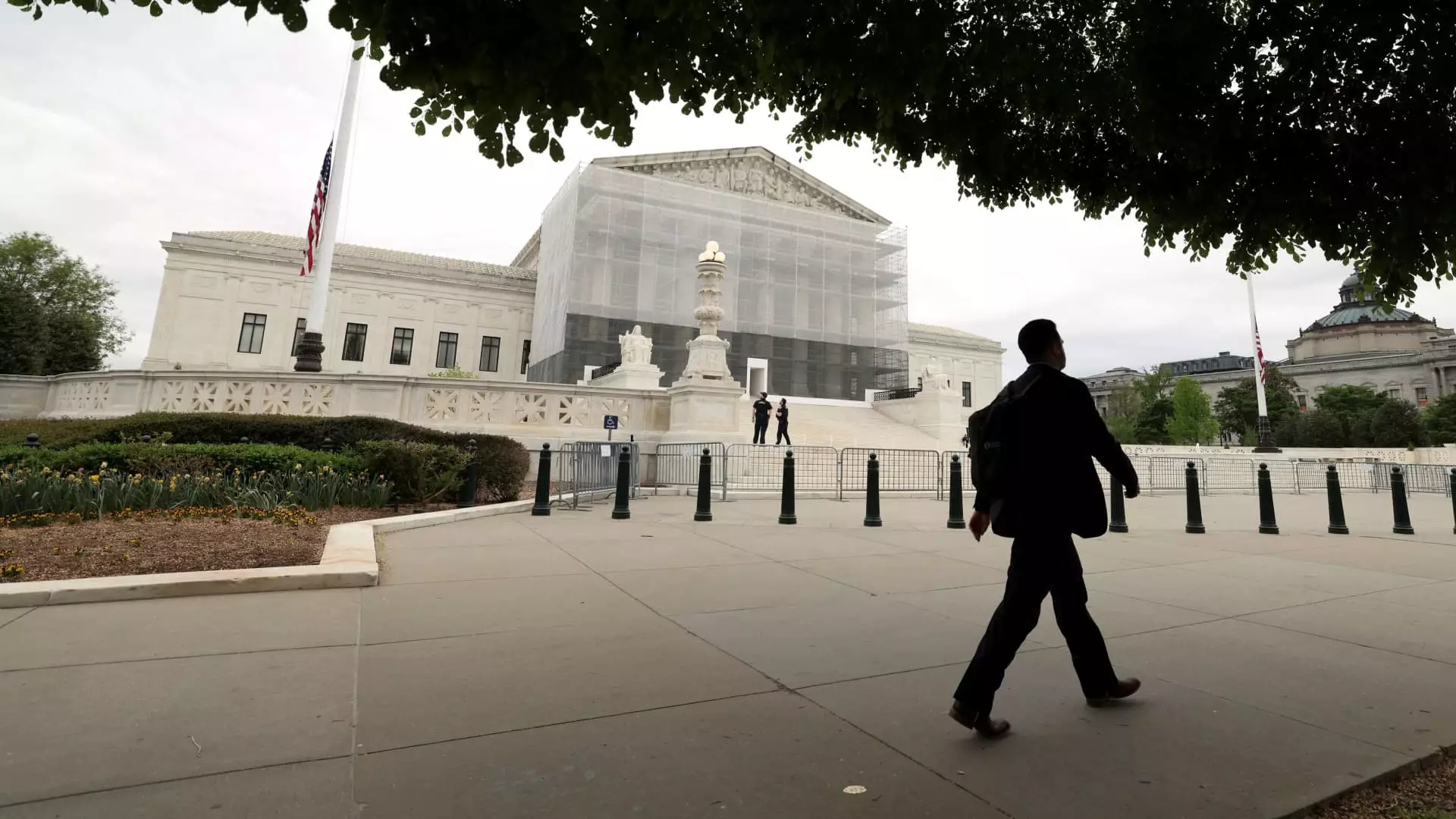In a powerful display of judicial oversight, the Supreme Court’s recent decision to grant an injunction against the deportation of Venezuelan nationals underscores the crucial role that the judiciary plays in maintaining the balance between national security and individual rights. With a majority ruling of 7-2, the justices highlighted a disturbingly common trend in contemporary politics: the undermining of due process in the pursuit of punitive measures against immigrant populations. This moment is not merely a legal footnote in the ongoing discourse about immigration policy; it represents a profound affirmation of the human rights of vulnerable individuals, a vigilance against the potential for governmental overreach, particularly under the auspices of national security.
The Consequences of Inadequate Notice
The court’s ruling fundamentally rests on the principle of due process, stating that the Trump administration provided insufficient time and resources for those facing deportation to contest their removal. The court noted that a mere 24-hour notice, devoid of any meaningful information regarding how to assert their rights, is an affront to the constitutional guarantees that protect all individuals within the United States. This is not simply a matter of legal technicalities; it echoes larger themes of fairness and justice that are supposed to underpin our judicial system. Allowing such practices to continue unchecked would send a troubling signal about the erosion of rights in the face of fear-mongering and scapegoating.
The Alien Enemies Act: A Double-Edged Sword
At the heart of this controversy is the Alien Enemies Act (AEA), a relic that has been resurrected inappropriately for political expediency. While the government sanctioned the use of the AEA against members of the Venezuelan gang Tren de Aragua, the Supreme Court did not wade into the murky waters of whether the application of the AEA was justified. What remains critical is the AEA’s historical context, which has often been used to target those deemed ‘undesirable’ based on flimsy criteria, and this time is no different. The invocation of such an act lays bare a troubling tendency to conflate immigration issues with national security, undermining the philosophical and legal foundations that define a democratic society.
Dissenting Opinions: A Call for Vigilance
The dissent voiced by Justices Alito and Thomas sheds light on the ongoing dichotomy within the Supreme Court regarding immigration policy. Their contention that the detainees were not in “imminent danger of removal” reflects a perspective that prioritizes governmental efficiency over civil liberties. While they criticized the majority for perceiving the actions of a U.S. District Court as unreasonably delayed, it must be pointed out that such retrospective analysis fails to grasp the urgency of safeguarding rights over administrative convenience. In challenging the majority, they inadvertently reinforce the constant need for vigilance against a governmental inclination to diminish the bedrock rights of individuals, particularly those on the margins.
The Broader Implications of the Ruling
This Supreme Court decision is not merely about the fates of a few Venezuelan nationals; it serves as a testament to the role of the judiciary in protecting individual rights amid a climate of fear and anxiety. The importance of this ruling transcends the immediacy of the case at hand; it resonates symbolically during a period characterized by intense debates surrounding immigration. The justices remind us that a constitutional democracy must protect its most vulnerable members, both for moral and legal reasons.
The challenges posed by national security must always be tempered by a commitment to justice and fairness. Moving forward, this ruling compels lower courts to accelerate their processes regarding cases invoked under the AEA, ensuring that the rights of all individuals are upheld without delay or obstruction. This case establishes an essential precedent that those facing removal must be provided adequate methods to defend themselves—an opportunity that reflects the principles of liberty and justice for all.

